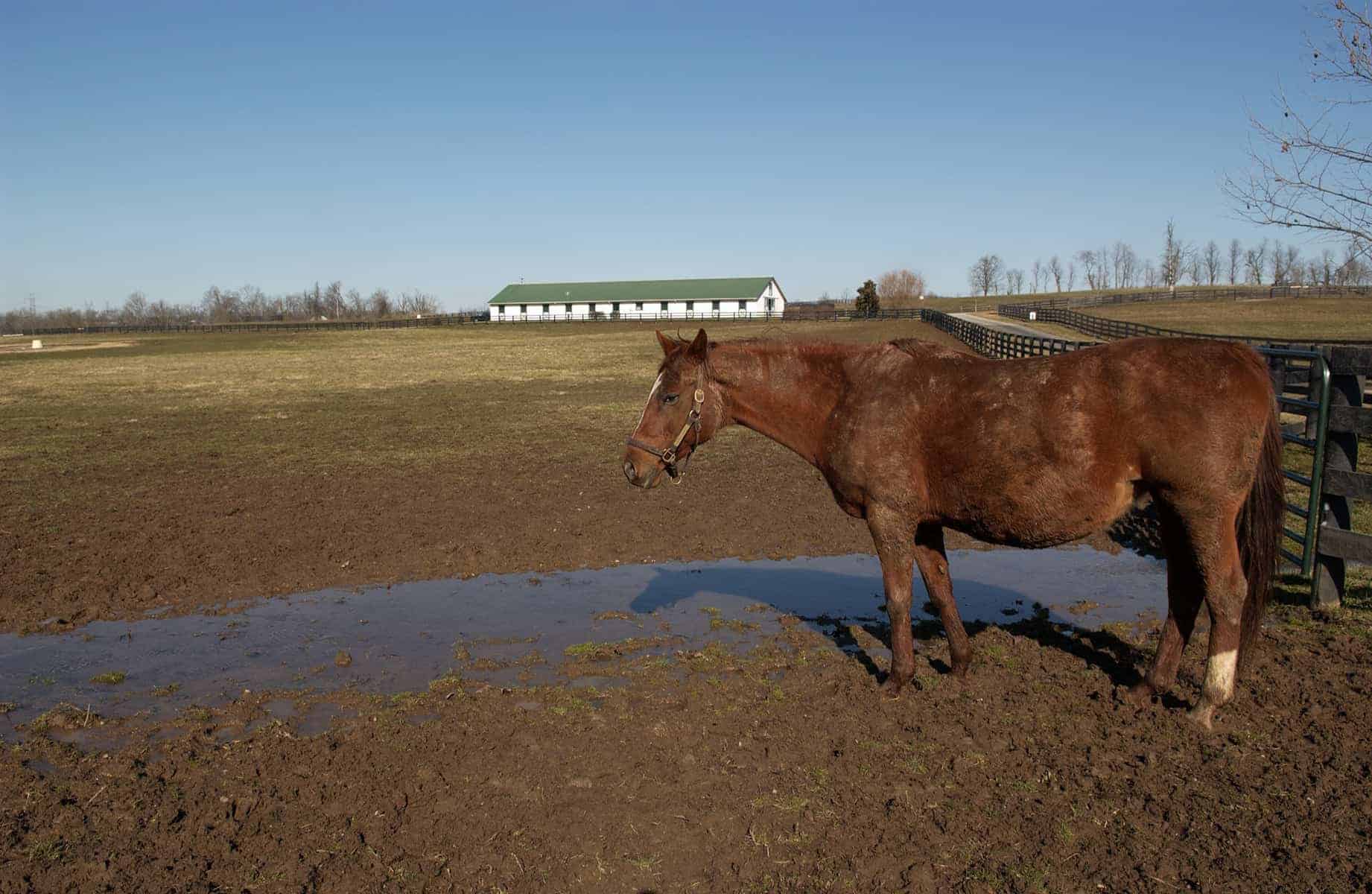Mud Management: Key to Horse Health, Safety During Wet Weather

Soggy conditions are nothing new in the Bluegrass: 2018 was one of the wettest years on record and model projections suggest that wetter-than-average weather will persist in the future. At the KENA meeting, Bob Coleman, PhD, and Krista Lea, MS, both of the University of Kentucky (UK), offered insights into wet-weather care for fields and shelters while Craig Lesser, DVM, CF, of Rood and Riddle Equine Hospital in Lexington, Kentucky, described possible equine health issues that can arise during wet weather.
Mitigating Mud
Coleman, UK Extension horse specialist, reviewed ways owners can modify their farms to better handle precipitation. He said water runoff can come from the roofs of buildings and roads, but also due to the way the land naturally drains. Installing gutters to divert water away from buildings, as well as using swales and culverts, can help eliminate standing water on farms.
At most farms, the heavily trafficked areas are the most prone to mud buildup, including around gates, shelters, waterers, and feeders. Coleman suggested constructing pads in as many of these areas as possible; this involves removing soil and adding geotextile fabric and rock to encourage water to drain away from where horses congregate
Create a free account with TheHorse.com to view this content.
TheHorse.com is home to thousands of free articles about horse health care. In order to access some of our exclusive free content, you must be signed into TheHorse.com.
Start your free account today!
Already have an account?
and continue reading.
Written by:
Edited Press Release
Related Articles
Stay on top of the most recent Horse Health news with















